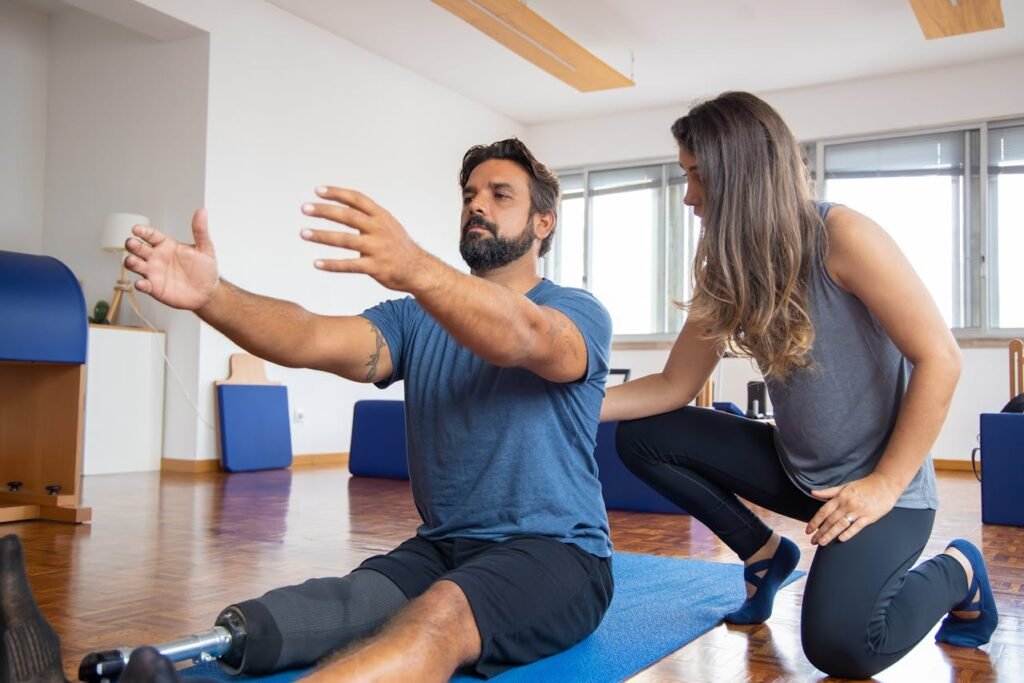A prosthetic trial is a life-changing step. It is the moment when you finally get to test how a new hand, arm, or leg can feel as part of your body. But before that experience, there is something just as important—planning the travel.
For many people, the clinic or prosthetic center is not just around the corner. It may be in another city, another state, or sometimes across the country. That means flights, trains, hotels, and careful preparation. The better you plan, the smoother your journey will be.
At RoboBionics, we meet people from every corner of India. Some come from bustling metros, others from small towns and villages. We have seen how the travel itself can be stressful if not thought through. This guide is here to make that part easier for you. We will walk together through how to plan flights, trains, and stays for a prosthetic trial. You will find practical steps, emotional guidance, and tips that make the journey simple and worry-free.
Understanding Why Travel Planning Matters
More Than Just a Journey
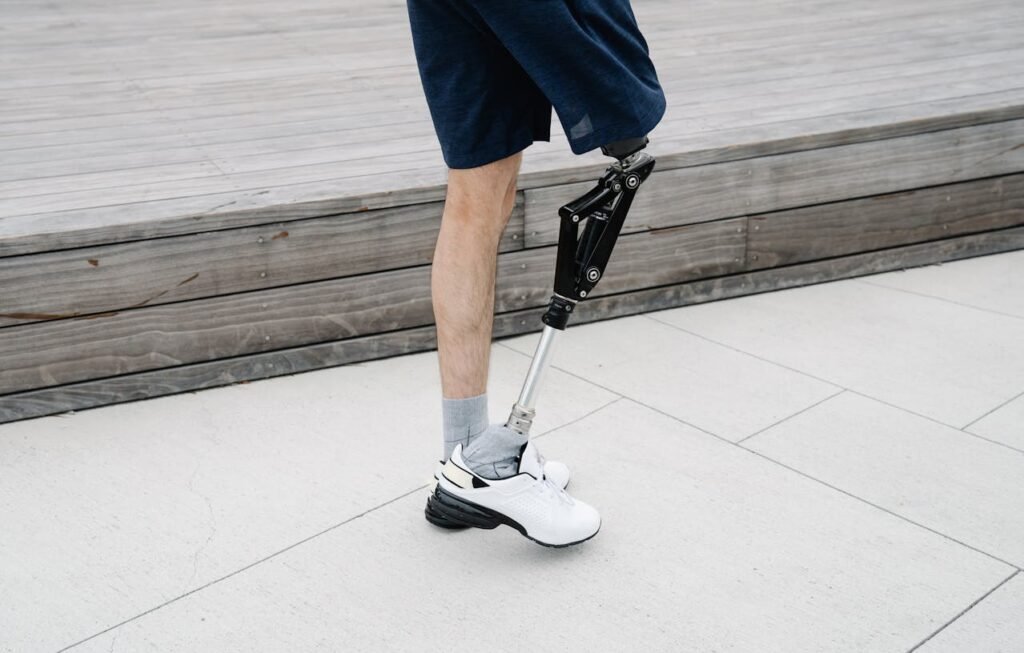
When you travel for a prosthetic trial, the trip is not like a casual holiday. It is part of your medical journey. A well-planned trip allows you to arrive rested and ready, not stressed or exhausted.
Reducing Anxiety
Many people feel nervous before their trial. Worrying about late trains, missed flights, or uncomfortable stays only adds to that stress. Planning carefully reduces those worries and gives you peace of mind.
Making Room for Adjustments
Sometimes, a trial may need more than one session. If your travel plan is flexible, you will have time for adjustments without rushing back home. This preparation ensures you get the best results.
Choosing Between Flights and Trains
When Flights Work Best
Flights are faster and save you hours of travel. If you live far from the clinic or have limited time, flying is often the better choice. For people with mobility concerns, the shorter travel time can also mean less fatigue.
When Trains Make Sense
Trains may take longer, but they can be more comfortable in some cases. You have space to stretch, walk a little, and avoid the stress of airports. Trains are also usually more affordable, making them a good option for longer stays.
Balancing Cost and Comfort
Your choice depends on your budget and your body’s comfort. If saving energy is most important, a flight is worth the cost. If saving money matters more, a train journey planned with rest stops may be the way to go.
Preparing for a Flight
Booking Smart
Book flights early to avoid high last-minute costs. Choose flight times that match your energy level. For example, if mornings are easier for you, pick a morning departure.
At the Airport
Arrive early so you are not rushed. Most airlines provide wheelchair assistance if you request it in advance. This service helps you move through the airport smoothly.
During the Flight
Choose an aisle seat for easier movement. Carry snacks, water, and any medicines you may need. Wear comfortable clothes that make it easy to sit for a few hours.
Preparing for a Train Journey
Picking the Right Class
If possible, book AC coaches with more comfort. Sleeper or chair car classes can feel tiring for longer trips. Having a private space helps you relax before the trial.
Timing Your Travel
Choose a train that arrives during the day. Reaching a new city in daylight makes finding your hotel and traveling to the clinic much easier.
Comfort on the Train
Carry a pillow or small cushion for support. Walk and stretch when possible. Drink enough water and eat light meals to avoid feeling sluggish when you arrive.
Planning Your Stay
Choosing the Right Location
Pick a hotel or guesthouse near the clinic. Being close means you save time and energy on travel within the city. Ask the clinic for recommendations—they often know reliable places nearby.
Looking for Accessibility
Check if the place has ramps, lifts, and easy entry. A stay that supports your mobility will make the experience more comfortable.
Keeping It Simple
You do not need luxury. What you need is comfort, cleanliness, and quiet. A simple stay with basic facilities is enough to help you rest well between trial sessions.
Managing Costs During Travel
Budgeting in Advance

Plan for tickets, stay, food, and local travel. Having a clear budget helps you avoid surprises.
Booking Together
If a family member is joining you, book tickets and rooms together. This saves money and avoids confusion.
Using Clinic Support
Some clinics, like ours, guide patients on affordable travel and stay options. Always ask if such help is available.
Emotional Readiness for Travel
Facing the First Journey
For many people, traveling to a prosthetic trial is their first big trip after an amputation. That thought alone can feel overwhelming. The mix of excitement and fear is natural. You may wonder if others will stare, or if you will manage the journey smoothly. These feelings are real and valid, and preparing emotionally is as important as preparing tickets.
Building Confidence
Confidence grows from small steps. Start by planning the journey in detail—knowing the flight time, the train schedule, the hotel address. When every step is clear in your mind, the unknown becomes less scary. Talk with family or friends about your plans. Their support and reassurance can help calm your nerves.
Carrying Support With You
Sometimes the best support is having someone by your side. If possible, bring a family member or close friend along. They can help with luggage, directions, and most importantly, emotional comfort. Having a familiar face with you reduces stress and gives you strength to focus on the trial.
Local Travel Once You Arrive
Choosing Safe Transport
Once you reach the city, you need to move between the station, the airport, the hotel, and the clinic. Pre-booking a taxi or ride service is the easiest way to avoid confusion. Many clinics also arrange pick-up services for patients—always check if this option is available.
Accessibility of Local Transport
If you need more mobility support, avoid crowded buses or auto-rickshaws. Instead, look for cabs or accessible vehicles that are safer and more comfortable. Saving a little money on transport is never worth the discomfort.
Staying Oriented in a New City
Keep important details written down—hotel address, clinic address, contact numbers. If your phone battery runs low, these notes will help. A paper copy of directions can sometimes save you from stressful situations in an unfamiliar city.
Preparing for Multiple Trial Days
Why One Day Is Not Always Enough
A prosthetic trial may require more than one session. The first day might be for the initial fitting, while the second or third day may involve adjustments, retesting, and training. If you plan only for one day, you may end up rushing and missing out on important refinements.
Planning a Flexible Stay
It is wise to book your stay with at least one extra day built in. This gives room for adjustments without worrying about missed trains or flights. If everything goes smoothly, you can always return earlier. But if more time is needed, you will be thankful for the flexibility.
Managing Energy Across Days
Each trial session may take effort. Testing, walking, gripping, and adjusting can feel tiring. That is why rest between sessions is important. Plan quiet evenings, simple meals, and good sleep. This will ensure you are fresh and focused for the next day’s trial.
Handling Unexpected Changes
Delays in Travel
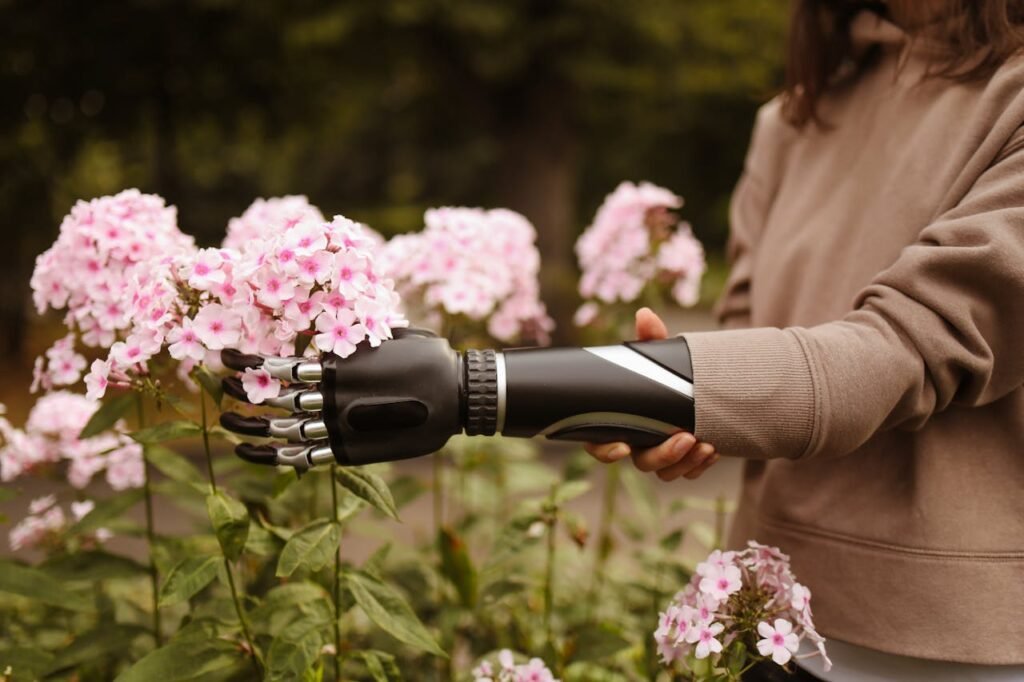
Trains can run late, flights can be rescheduled. Accepting this possibility in advance helps reduce frustration. Always carry a small snack, water, and essential medicines in case of delays. If you are late to the clinic, call ahead—they will understand and adjust your appointment.
Rescheduling Sessions
Sometimes the prosthetist may need more time to prepare your device or to make adjustments. This may mean shifting your session to another day. Staying calm and flexible is key. Remember, every change is to make sure your prosthetic feels right for you.
Handling Health Concerns
Travel can sometimes trigger fatigue or minor health discomforts. If you feel unwell, let the clinic know right away. They can reschedule the trial or provide support. Never push yourself beyond your comfort for the sake of keeping to the schedule.
Packing for Your Journey
Essential Items to Carry
Carry your medical documents, ID proof, and any past reports related to your limb. These may help the prosthetist understand your condition better. Keep medicines, snacks, and a water bottle within easy reach.
Packing for Comfort
Bring clothes that are easy to wear and remove. If you are testing a prosthetic arm, short-sleeve shirts are best. If you are testing a leg prosthetic, wear trousers that can be rolled up easily. Comfortable shoes or sandals are also important for moving around.
Keeping Documents Safe
Use a folder to organize tickets, medical papers, and hotel details. Keep both digital and paper copies. This avoids last-minute panic if your phone battery dies or you lose signal.
The Role of Family in Travel Planning
Sharing the Responsibility
Travel planning does not have to fall on your shoulders alone. Share the work with a family member—one person can handle bookings, another can manage luggage, another can take care of food. Teamwork makes the process lighter.
Emotional Support in New Places
Arriving in a new city can feel isolating. Having family by your side gives you comfort. They remind you that you are not alone in this journey, and their presence makes the unfamiliar feel familiar.
Celebrating Together
Every small success in the trial is worth celebrating. Holding a cup, walking a few steps, or writing a word may feel like miracles after a long wait. Sharing these moments with family makes them even more special.
Real Travel Examples from Prosthetic Users
Long Journey by Train
Ravi, a shopkeeper from Jharkhand, traveled to Pune for his first prosthetic trial. He chose the train because flights were expensive and his cousin was traveling with him. The journey was long—almost 24 hours—but he booked an AC coach so he could rest comfortably. Ravi carried his medical reports, some home-cooked food, and a pillow. By the time he reached the city, he was tired but not exhausted. The next morning, after a good night’s sleep in a hotel near the clinic, he walked into his trial session feeling fresh. His careful planning made the difference.
Quick Flight Across States
Meena, a college lecturer, had limited time because of her work schedule. She decided to fly from Kolkata to Delhi for her trial. She booked an early morning flight so she could reach before noon, attend the session, and still rest in the evening. Since she was traveling alone, she requested wheelchair assistance at the airport, which made boarding stress-free. She stayed one extra night in Delhi in case adjustments were needed the next day. This gave her peace of mind and flexibility.
Balancing Cost and Comfort
Suresh, a student from a small town in Madhya Pradesh, was very conscious about budget. He took a train journey to Nagpur but chose a mid-range guesthouse near the clinic. It was not fancy, but it was clean and quiet. He saved money by eating simple meals at local restaurants. He had two trial sessions across three days and managed his stay without overspending. His story shows that with planning, even limited budgets can cover a prosthetic journey smoothly.
Budgeting for Prosthetic Travel
Knowing the Costs in Advance
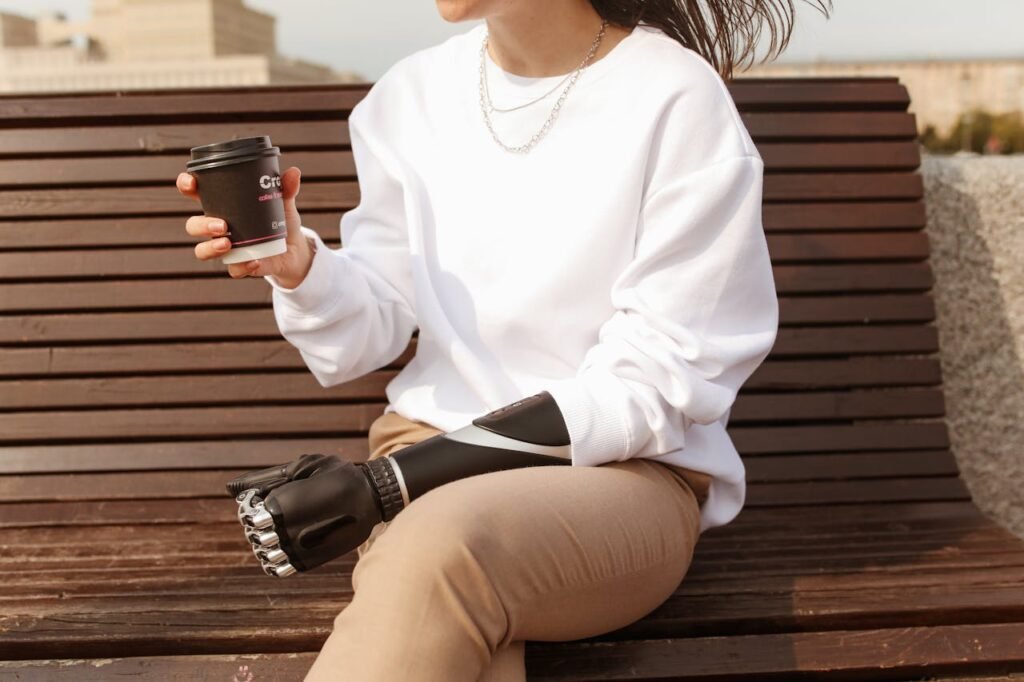
Travel costs can be overwhelming if not planned. Tickets, hotel stays, local transport, and food must all be considered. Write down a rough estimate before booking. This way, you avoid surprises and can prepare savings.
Balancing Between Saving and Comfort
It is natural to want to save money, but never at the cost of your health. For example, booking the cheapest hotel far from the clinic may save a few hundred rupees but add unnecessary travel stress. A balance between affordability and comfort is key.
Seeking Clinic Guidance
Many prosthetic centers, including ours, suggest nearby accommodation options. Some even have tie-ups with guesthouses or hostels for patients. Asking for this guidance can save both money and effort.
Handling Multiple Appointments
Planning Around Sessions
If you have two or three sessions spread across different days, avoid running around the city in between. Use that time to rest. Explore only if you feel comfortable. The goal is to save energy for your prosthetic trial.
Preparing for Unexpected Delays
Sometimes, a fitting takes longer than expected. Or a calibration may need repeating. This is not unusual—it is part of getting the perfect fit. Always plan for an extra day or two in your schedule so delays do not create panic.
Staying Mentally Ready
Extended stays can feel tiring, but remind yourself of the bigger goal. Every adjustment brings you closer to comfort and independence. Patience is not just helpful, it is essential.
Health Tips for Travel
Eating Light
Travel often changes eating patterns. Stick to light, simple meals to avoid stomach discomfort. Heavy food before a trial may make you feel sluggish.
Hydrating Often
Carry a bottle of water everywhere. Dehydration is easy to ignore during travel but can make you feel tired faster.
Resting Well
Sleep is your best support before a prosthetic trial. Whether on a train, in a hotel, or after a flight, make sure you give your body proper rest.
Emotional Side of Travel
Dealing with Uncertainty
Every new city feels different. Different language, food, and people can feel overwhelming. Remind yourself that you are here for a purpose. The clinic team will guide you, and each step is part of the journey to recovery.
Small Victories Along the Way
Think of travel itself as a victory. Reaching a new place, navigating it, and showing up for your trial already proves your strength. This mindset helps you face the prosthetic trial with courage.
Staying Positive
Surround yourself with positive thoughts. Carry a book, music, or a photo of loved ones. These small comforts reduce stress and keep you focused on what matters.
Building Memories Along the Journey
Turning the Trip Into a Story
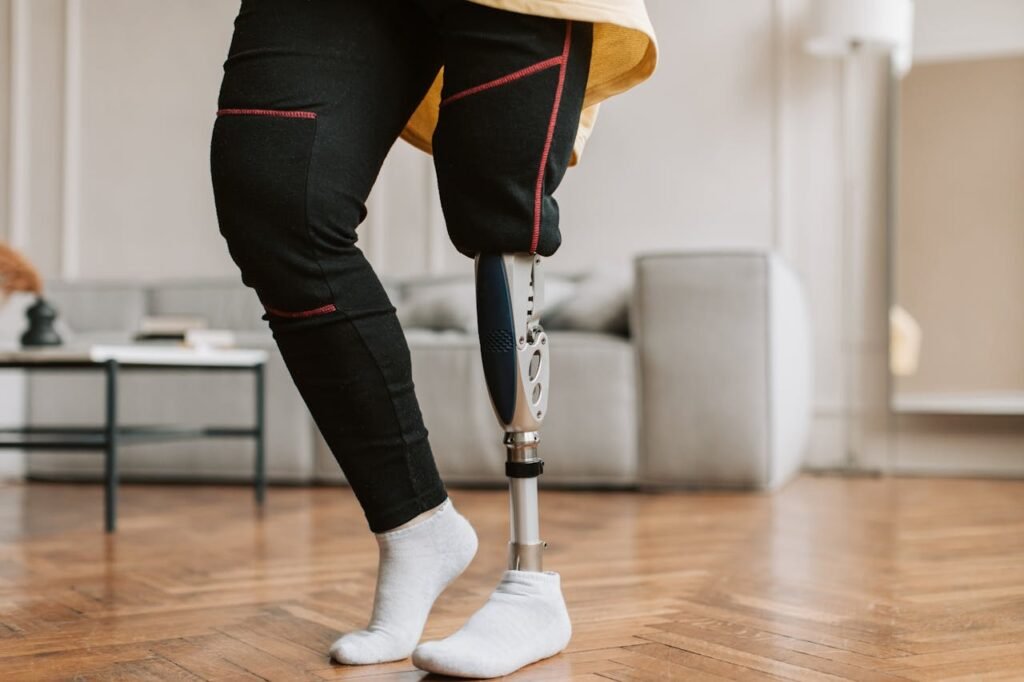
One day, you will look back and remember not just the trial but the journey you made to reach it. Every train ride, every airport wait, every new city street becomes part of your story of resilience.
Involving Family in the Experience
When you travel with loved ones, the journey becomes shared. From choosing meals to finding the clinic, each moment adds to the bond. These memories create strength for the future.
Celebrating the Milestone
A prosthetic trial is a milestone. Even if it requires long travel, it is worth celebrating. Treat yourself to a nice meal, a quiet walk, or simply a smile of pride at the end of the day.
Step-by-Step Travel Planning for Prosthetic Trials
Step One: Confirming the Appointment
The first step is always to confirm your trial dates with the clinic. Ask how many days you will need to stay. Sometimes a single fitting is enough, but in many cases, two or three sessions are required. Having clarity helps you decide whether to book return tickets immediately or keep your schedule flexible.
Step Two: Choosing Your Mode of Travel
Decide early whether you will take a flight or train. If the clinic is within 300–400 kilometers, a train or car journey may be manageable. For longer distances, flights save time and energy. Consider your health and stamina—sometimes paying a little more for a flight is worth the comfort it brings.
Step Three: Booking Smartly
Always book tickets as soon as your appointment is confirmed. Flight and train fares rise the closer you get to the travel date. Booking early gives you more options and reduces stress. For stays, choose places that allow easy rescheduling or cancellation in case your clinic visit shifts.
Step Four: Planning Local Transport
Once you know your arrival station or airport, plan how you will reach the clinic or your hotel. Call the clinic in advance to ask for directions. Some centers arrange pick-up services, and many can guide you toward safe and accessible options.
Step Five: Organizing Your Stay
Select a stay close to the clinic. The less time you spend traveling within the city, the more energy you save for your trial. Look for accessibility features such as elevators, ramps, and wide doorways. Comfort matters more than luxury—you need a space where you can relax.
Challenges You May Face During Flights
Long Walks at Airports
Airports are large and require a lot of walking. Request wheelchair assistance when booking tickets or at check-in. This ensures you reach your gate without strain.
Strict Timelines
Flights follow tight schedules, and delays in reaching the airport may mean missing your plane. Plan to reach at least two hours early for domestic flights. This buffer helps you handle traffic or long queues calmly.
Seating Concerns
Always choose an aisle seat. It allows you to stretch your arm or leg comfortably and makes it easier to move if needed. Inform the airline if you have any special requirements—they often accommodate passengers with medical needs.
Challenges You May Face During Train Travel
Long Durations
Trains can take many hours, even days. Carry pillows, a blanket, and snacks to make the journey more comfortable. Movement breaks during long journeys are important for circulation and energy.
Cleanliness Issues
Not all stations or compartments maintain high cleanliness. Carry sanitizers, tissues, and bottled water. A small travel kit can make a big difference in how comfortable you feel.
Reaching the Station
Railway stations are often crowded and noisy. If this worries you, arrive early and wait in the quieter waiting rooms. Ask family or staff for assistance in handling luggage or finding your platform.
Staying Focused on the Purpose
Reminding Yourself of the Goal
It is easy to get caught up in the stress of tickets, luggage, and delays. But remind yourself—this travel is not just a trip, it is part of your recovery. Each mile you cross is a step closer to regaining independence.
Being Patient With the Process
Not everything will go smoothly. A delayed train or a rescheduled appointment may feel frustrating. But patience is key. The ultimate goal is not how quickly you reach but how well the prosthetic fits when you do.
Celebrating the Journey Itself
The fact that you are making the effort to travel for your trial is itself a victory. Every small challenge you overcome makes you stronger. See the journey as part of your growth.
Staying Healthy During Travel
Eating and Drinking Wisely
Carry dry snacks like fruits, nuts, or biscuits to avoid relying completely on outside food. Stay hydrated, but avoid drinking too much before long stretches without a washroom.
Keeping Medicines Handy
Pack your medicines in a small pouch you can access easily. Do not place them in checked luggage during flights or deep inside bags during trains.
Managing Stress
Music, books, or simple breathing exercises can calm nerves during travel. Carry things that comfort you, whether it’s a favorite playlist or a journal.
Case Stories of Travel Challenges
The Missed Train
Sohan, traveling from Bihar, missed his connecting train because of a delay in the first leg of his journey. At first, he panicked, but he had planned a one-day buffer before his trial. This allowed him to reach a day later without losing his appointment. His story shows why building flexibility into your plan is important.
The Heavy Luggage
Nisha, from Kerala, packed too much for her trial trip. Carrying multiple bags became stressful, especially when changing platforms. On her return trip, she packed lighter and found the journey easier. Her lesson was simple—carry only what you really need.
The Unexpected Extension
Rajesh, who came from Gujarat, thought his trial would take just one day. But the prosthetist suggested two more sessions for adjustments. Since he had booked an extra two nights at a nearby guesthouse, he managed without stress. His foresight helped him get a much better fit.
Building a Personal Travel Checklist
Essentials for Every Journey
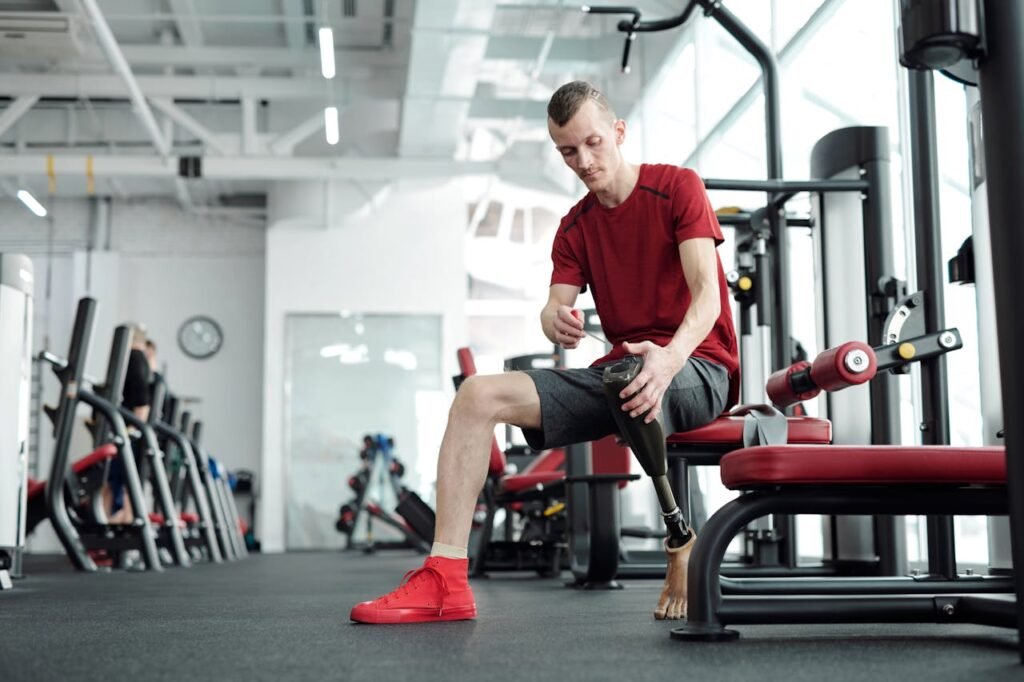
When planning your prosthetic trial trip, keep a checklist ready. At the top, include your ID cards, medical records, prescription medicines, and appointment confirmation. These are non-negotiable items. Without them, you may face unnecessary hurdles.
Comfort and Clothing
Carry loose, breathable clothing that makes it easy to put on and remove the prosthetic. A short-sleeve shirt is useful for arm trials, while trousers that can roll up are best for leg trials. Comfortable shoes are important too—avoid anything that pinches or restricts your movement.
Technology and Communication
Your phone, charger, and power bank are travel lifelines. Keep the clinic’s number saved in your phone and written on paper. A small notebook and pen can also help you jot down instructions or your own observations during the trial.
Food and Water
Travel can make your body feel tired faster. Having a small supply of snacks—like fruit, biscuits, or nuts—helps keep your energy steady. A refillable water bottle is also important to stay hydrated.
Planning for Repeat Visits
Why Repeat Visits Are Common
Rarely does everything work perfectly in the first trial. Adjustments are often needed to fine-tune comfort, grip, or balance. Knowing this in advance helps you see travel as part of the process rather than an interruption.
Scheduling Smartly
If the clinic suggests another session, try to book it in advance so you can find affordable travel tickets. Planning early saves money and stress. Some patients align their follow-ups with other trips, such as family visits, to reduce travel frequency.
Building Familiarity with the City
The more you visit, the less strange the city feels. Over time, you may find a preferred hotel, a favorite restaurant, or even friendly local contacts. Each trip becomes easier as you build your personal routine.
Emotional Journey of Travel and Trials
Overcoming Fear
The first journey may feel scary. You are stepping into unknown spaces—stations, airports, hotels, clinics. But once you complete it, you realize you are stronger than you thought. That confidence spills into your prosthetic trial too.
Finding Strength in Small Wins
Every small success—reaching the clinic on time, trying the prosthetic, walking out with hope—adds to your courage. These wins are as important as the trial itself.
Creating Stories of Resilience
One day, you will look back and remember the journeys you made for your prosthetic. They will not feel like burdens but like chapters in a story of determination and growth.
Long-Term Strategies for Smooth Travel
Keeping a Ready Bag
Some patients keep a small travel bag ready at all times with essentials like documents, medicines, and basic clothes. This habit makes last-minute trips less stressful.
Building Savings for Travel
Travel costs are part of your prosthetic journey. Setting aside a small amount every month helps build a travel fund. This way, repeat visits never feel like sudden financial shocks.
Creating a Support Network
Over time, you may meet others at the clinic who are on the same journey. Staying in touch allows you to share tips about travel, stays, and experiences. This network becomes a source of comfort.
The Role of Clinics in Supporting Travel
Guidance on Logistics
A good clinic does more than provide prosthetics. It guides patients on where to stay, how to travel, and even what to expect emotionally. This support can save you hours of confusion in a new city.
Flexible Scheduling
Sometimes patients arrive late due to delays. Clinics that adjust appointments show they care about the challenges of travel. Flexibility is as important as technical skill in making patients feel safe.
Building Trust Beyond the Device
When a clinic helps with travel advice, it shows they see the patient as a whole person, not just a medical case. This builds a bond of trust that lasts far beyond the fitting room.
Conclusion
Travel planning for prosthetic trials is not just about tickets and hotels. It is about preparing yourself—physically, mentally, and emotionally—for one of the most important steps of your life. The smoother your travel, the more energy you can devote to your trial.
Whether you take a flight, a train, or a long road journey, each mile is part of your story. Each detail—packing lightly, booking wisely, choosing comfort—adds to the success of your trial. And every journey you make brings you closer to independence, confidence, and dignity.
At RoboBionics, we understand that your prosthetic journey begins long before you wear the device. It begins with the courage to plan, to travel, and to show up. That is why we support you not just inside the clinic but also outside, guiding you with care for every step of the road.
If you are planning your prosthetic trial, know this—you are not alone. We are here to walk with you, from booking your first ticket to the moment you grip, walk, or move again with freedom.
Book your prosthetic trial with RoboBionics today and let’s take this journey together—through travel, trials, and triumph.



